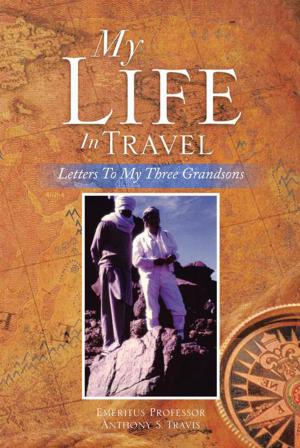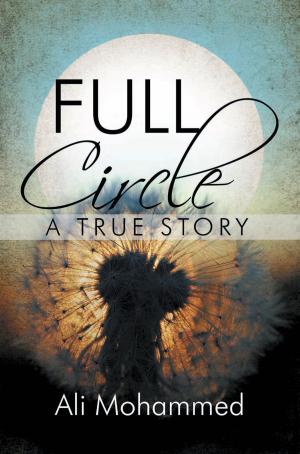| Author: | Andrew Man | ISBN: | 9781465394293 |
| Publisher: | Xlibris UK | Publication: | November 9, 2011 |
| Imprint: | Xlibris UK | Language: | English |
| Author: | Andrew Man |
| ISBN: | 9781465394293 |
| Publisher: | Xlibris UK |
| Publication: | November 9, 2011 |
| Imprint: | Xlibris UK |
| Language: | English |
The book follows the adventures of a young professional, James Pollock, from the Swinging Sixties to the new Millennium. Our hero appears to have the ability to attract the fair sex and uses it to the full! The story includes Romance, Revelations and Restoration, of global proportions. It expands ideas about an ancient monument, as the reader discovers how the hero uses time travel to uncover the murky world of finance.
Book Review:
Tego Arcana Dei does not start out as or even truly hint at being a work of science fiction until some forty pages into the book. Once author Andrew Mans protagonist, James Pollack, discovers he can use astral travel to jump through time and space, the exploration and use of his power becomes the driving theme of the novel.
Over the course of fifty years, across five continents, and through the financial and political crises of the modern world, Pollack gradually learns how to use his special abilities. He sleeps with a bevy of beautiful women, and each helps him unravel the mystery of a complex network of wormholes. Pollacks guardian, Deepak, describes these sites as the old astral ways which connect Rome, to the church here in Sofia and on to the Hagia Sophia in Turkey, then across to the Temple in Jerusalem and down to the City of Ur, or Babylon. Pollack and his associates make use of these tunnels in time and space to disarm Saddam Husseins giant space cannon, to alleviate a financial crisis, and sometimes just to have hot sex.
Another of the books themes involves quite a combination of major elements: particle accelerators, the wobble in the Earths rotational access, Freemasonry, the Knights Templar, and the Vatican. Perhaps a statement from one of the storys own characters is appropriate here: Im sorry my dear, but you are losing me with this detail.
The story is fun, enjoyable, entertaining, and well-written. The author does have an odd habit of adding a question mark to the end of sentences that are not questions, although this may be to indicate the speaker is delivering the line in an uncertain, quizzical manner. Other than a few minor typos, the text is clean, clear, and, for the most part, crisp.
The storys exotic localesthe Caribbean, Europe, and the Middle Eastas well as the assortment of beautiful women Pollack encounters there, brings to the book an atmosphere of a James Bond adventure. This is not meant as criticism. The Fleming inspiration sets the mood in the first chapter, when, in 1967, Pollack, a young merchant marine at the time, has a fling with a sexy shipboard siren in South Africa. For the next forty-three years and five chapters, Pollack jumps in and out of time, trouble, and twin beds, using his remarkable gift to skip across the planet and the calendar, sometimes even without a wormhole.
Andrew Man has Pollack do all this in a fairly breathless two hundred pages. The reader cant help but agree with one of Pollacks conquestsas she exclaims in a Fleming-like last lineWow, James, you really do get around, dont you!
Mark G. McLaughlin
ForeWord Clarion Review
The book follows the adventures of a young professional, James Pollock, from the Swinging Sixties to the new Millennium. Our hero appears to have the ability to attract the fair sex and uses it to the full! The story includes Romance, Revelations and Restoration, of global proportions. It expands ideas about an ancient monument, as the reader discovers how the hero uses time travel to uncover the murky world of finance.
Book Review:
Tego Arcana Dei does not start out as or even truly hint at being a work of science fiction until some forty pages into the book. Once author Andrew Mans protagonist, James Pollack, discovers he can use astral travel to jump through time and space, the exploration and use of his power becomes the driving theme of the novel.
Over the course of fifty years, across five continents, and through the financial and political crises of the modern world, Pollack gradually learns how to use his special abilities. He sleeps with a bevy of beautiful women, and each helps him unravel the mystery of a complex network of wormholes. Pollacks guardian, Deepak, describes these sites as the old astral ways which connect Rome, to the church here in Sofia and on to the Hagia Sophia in Turkey, then across to the Temple in Jerusalem and down to the City of Ur, or Babylon. Pollack and his associates make use of these tunnels in time and space to disarm Saddam Husseins giant space cannon, to alleviate a financial crisis, and sometimes just to have hot sex.
Another of the books themes involves quite a combination of major elements: particle accelerators, the wobble in the Earths rotational access, Freemasonry, the Knights Templar, and the Vatican. Perhaps a statement from one of the storys own characters is appropriate here: Im sorry my dear, but you are losing me with this detail.
The story is fun, enjoyable, entertaining, and well-written. The author does have an odd habit of adding a question mark to the end of sentences that are not questions, although this may be to indicate the speaker is delivering the line in an uncertain, quizzical manner. Other than a few minor typos, the text is clean, clear, and, for the most part, crisp.
The storys exotic localesthe Caribbean, Europe, and the Middle Eastas well as the assortment of beautiful women Pollack encounters there, brings to the book an atmosphere of a James Bond adventure. This is not meant as criticism. The Fleming inspiration sets the mood in the first chapter, when, in 1967, Pollack, a young merchant marine at the time, has a fling with a sexy shipboard siren in South Africa. For the next forty-three years and five chapters, Pollack jumps in and out of time, trouble, and twin beds, using his remarkable gift to skip across the planet and the calendar, sometimes even without a wormhole.
Andrew Man has Pollack do all this in a fairly breathless two hundred pages. The reader cant help but agree with one of Pollacks conquestsas she exclaims in a Fleming-like last lineWow, James, you really do get around, dont you!
Mark G. McLaughlin
ForeWord Clarion Review















